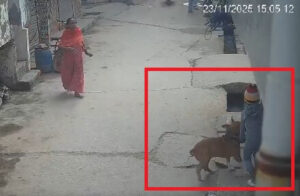EVM skeletons in RTI replies: Contradictory numbers from EC, suppliers raise question mark on polls

Mumbai : Indiscriminate acquisition of Electronic Voting Machines (EVMs) by the Election Commission, inexplicable mismatch in numbers of machines from producers and buyers, and insecure transportation have emerged as major concerns from official replies to Right to Information (RTI) queries.
Mumbai RTI activist Manoranjan S. Roy — who painstakingly pursued the matter for nearly a year — said the RTI responses may have severe repercussions on the conduct of free, fair and credible elections in the country.
Terming the revelations “extremely grave”, Roy said the poll panel and the EVM manufacturing companies need to be asked to explain these discrepancies as it “affects the very foundation of the Indian democracy and its election system”.
Used in India since 1989, the EVMs — comprising a Balloting Unit (BU) and a Control Unit (CU), and recently, Voter Verifiable Paper Audit Trail (VVPAT) — are currently manufactured by only two PSUs — Electronics Corp of India Ltd (ECIL), Hyderabad, and Bharat Electronics Ltd (BEL), Bengaluru.
Roy’s RTI queries revealed that from 1989-90 till May 15, 2017, the Election Commission procured a total of 1,005,662 BUs and 928,049 CUs from BEL, plus another 1,014,644 BUs and 934,031 CUs from ECIL.
?
An RTI query to the Union Ministry of Law and Justice showed that the government received intimation of purchase of 1,395,306 BUs and 930,716 CUs in 2016-17.
BEL said on June 9, 2017, that it supplied 125,000 CUs and 190,000 BUs to EC, from 2010 to 2017.
ECIL said it provided 222,925 BUs and 211,875 CUs to EC from 2010 to 2017, and another 497,348 BUs and 307,030 CUs for the same period.
According to Roy, against the figures provided by the EC on the number of EVMs received, BEL and ECIL have submitted data with huge differences in the numbers they have supplied, at times ranging from several thousands to lakhs of EVMs, raising questions on “where the excess number of EVMs are going, what is being done with them”.
Roy says all this “indicates something very suspicious is going on between these organisations”.
On the questions of payments too, major discrepancies came out in the figures from 2006-07 to 2016-17.
Against the EC’s “actual expenditure” of Rs 5,360,175,485 (spent) on EVMs, the BEL RTI reply said it received from EC a payment of Rs 6,525,644,000 — a difference (excess) of Rs 116.55 crore.
On the mode of transportation, the capacity of trucks vis-à-vis the dimensions of the EVMs, BUs and CUs — figures provided by both BEL and ECIL also were way off.
“In many instances, the transportation details are at complete variance with the purported capacity of the trucks vis-à-vis the EVM dimensions and the carrying load of the containers that are disclosed,” Roy said.
“According to the standard calculations, a 32x8x8 feet container can accommodate 199 BUs or 261 CUs, and a 20x8x8 feet container can take 124 BUs or 163 CUs, but the BEL says it has dispatched between 320 to 400 units per container. Were extra machines
dispatched to EC? If so, what happened to them,
?”?asked Roy.
Even on the question of voter and candidates capacity of the EVMs, the figures thrown up points to non-standardisation from both the manufacturers.
“Between 1989 and 2000, the ECIL EVMs capacity was 64 candidates and voter capacity 3,902. It was modified in 2014-15 to accept 384 candidates but only for 2,000 voters. In 2014-15, its EVM’s capacity was for 60 candidates and 8,000 voters. But the capacity of VVPAT EVMs was a mere 1,500 voters,” said Roy.
BEL said in its reply that, till 2005, its EVMs had a capacity of 3,824 voters which was later reduced to 2,000 from 2006. At present, their EVMs have capacity for only 16 candidates. “There is absolutely no logic or standardisation applied. Who authorised these design changes,” Roy asked.
Roy has filed a writ petition in the Bombay High Court, through Pawar & Company, seeking directions to all parties to provide all records/documents pertaining to EVMs, setting up of a suitable probe panel to ban use of EVMs till the logical outcome of the probe.
IANS





